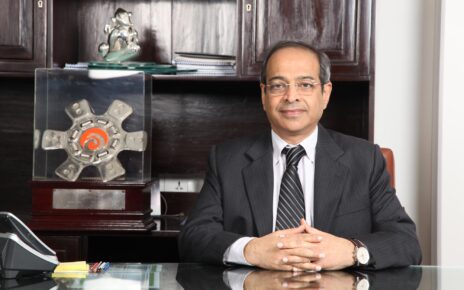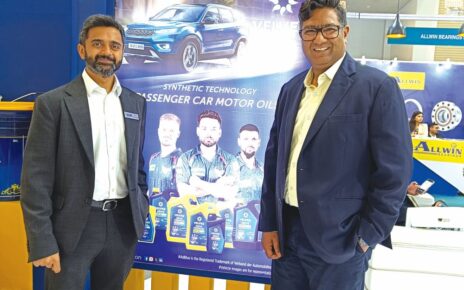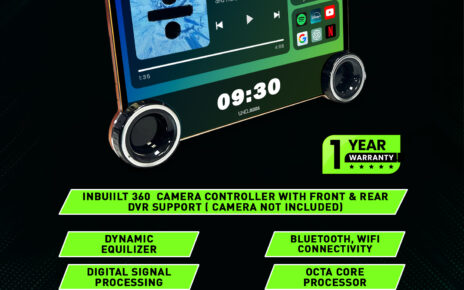
In an exclusive interview with Rajesh Rajgor, Niranjan Kirloskar, Managing Director of Fleetguard Filters Private Limited, shared how the company is strengthening its focus on the commercial vehicle market with a robust lineup of filtration solutions. Niranjan discussed Fleetguard’s dedication to innovation amid evolving fuel technologies like diesel, LNG, and hydrogen, while remaining cautious about EV adoption in heavy-duty sectors. He emphasized Fleetguard’s commitment to meeting OEM standards, sustainable practices, and building a strong aftermarket network across India, positioning the company to support industry needs effectively.
Fleetguard Filters has established itself as a leading name in the commercial vehicle sector, exclusively dedicated to delivering high-quality filtration solutions tailored to this industry. Managing Director Niranjan Kirloskar emphasizes the company’s focused commitment, stating, “We make filtration solutions for On and Off-Highway applications.” With a broad spectrum of solutions, Fleetguard offers air, lube, fuel, hydraulic, and air oil separators along with a range of other products like crankcase ventilation, coolants and chemicals, and diesel exhaust fluid (DEF) systems critical for BS-VI and above vehicles, ensuring cleaner and more efficient operations for today’s commercial fleets.
Holistic Filtration Solutions
Fleetguard’s adaptability shines through its approach to product development. Niranjan explains, “We provide tailor-made solutions to customers by understanding their needs. In addition to meeting filtration requirements, Fleetguard prioritizes sustainability for Original Equipment Manufacturers (OEMs). He stresses the importance of filtration, stating, “If the fuel is not filtered properly, there is a lot at stake.” With OEMs increasingly demanding compact filtration systems that fit within limited vehicle space, Fleetguard’s application engineering team constantly innovates to enhance efficiency.
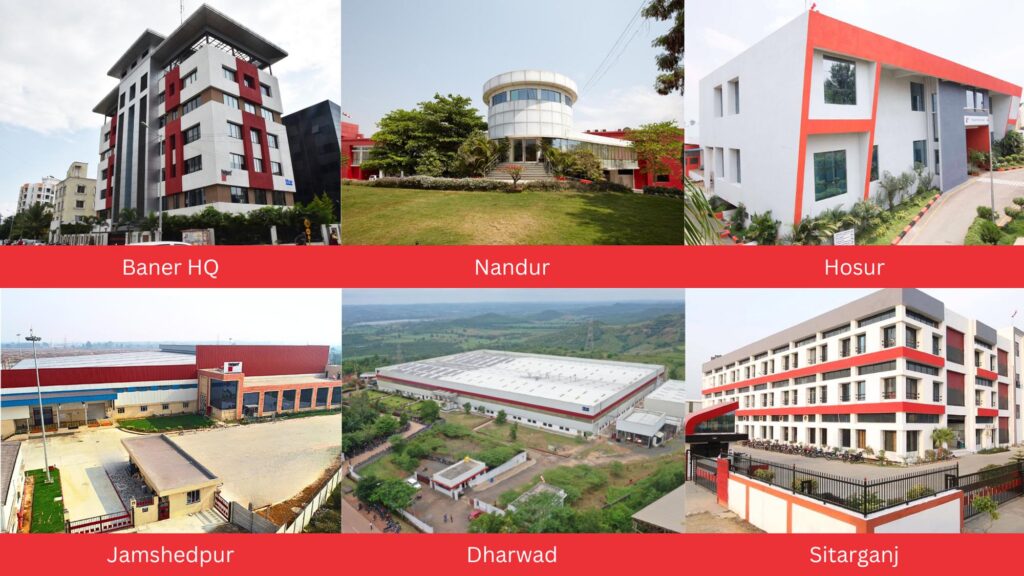
Fleetguard’s commitment to excellence is evident in its manufacturing strategy, which revolves around a “make-to-supply (MTS) model.” “We don’t ask our OEMs for forecasts; instead, we work on a system where the product is ready to be delivered as and when needed,” Niranjan reveals. This approach minimizes lead times, enabling rapid responses to customer demands and efficient inventory management.
The company operates five strategically located plants in Jamshedpur, Sitarganj, Pune, Dharwad, and Hosur. He shares, “All our plants are close to our customers and equipped with state-of-the-art manufacturing capabilities, ensuring quality standards are consistent everywhere.” This flexibility allows Fleetguard to tackle production challenges while maintaining high-quality output.
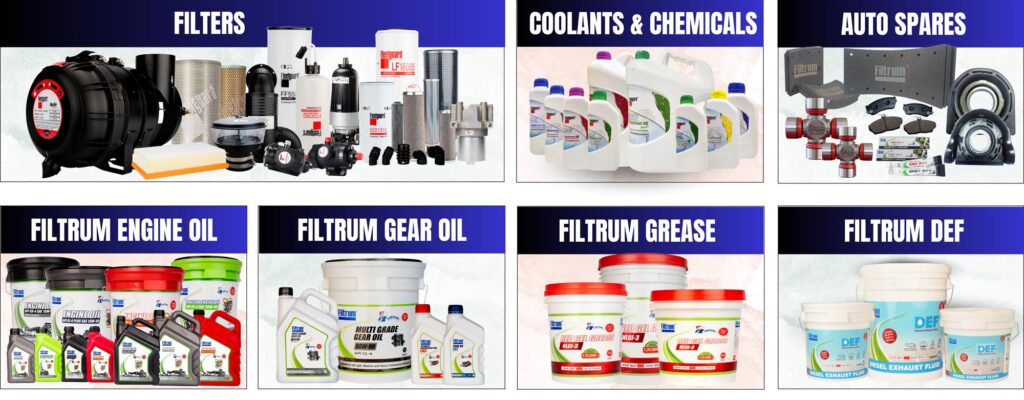
Additionally, Fleetguard’s inventory system is monitored frequently, providing real-time insights into supplier performance. “If we notice a part continuously falling short, we immediately investigate the issue rather than pushing for increased productivity without understanding the root cause,” Niranjan explains. This targeted approach helps maintain optimal inventory and avoid unnecessary waste.
Quality and Flexibility as Pillars
Quality and affordability are core tenets of Fleetguard’s manufacturing setup. “Our customers do not have to maintain inventory, and our delivery performance to all our OEMs has consistently been 98% and above,” he highlights.
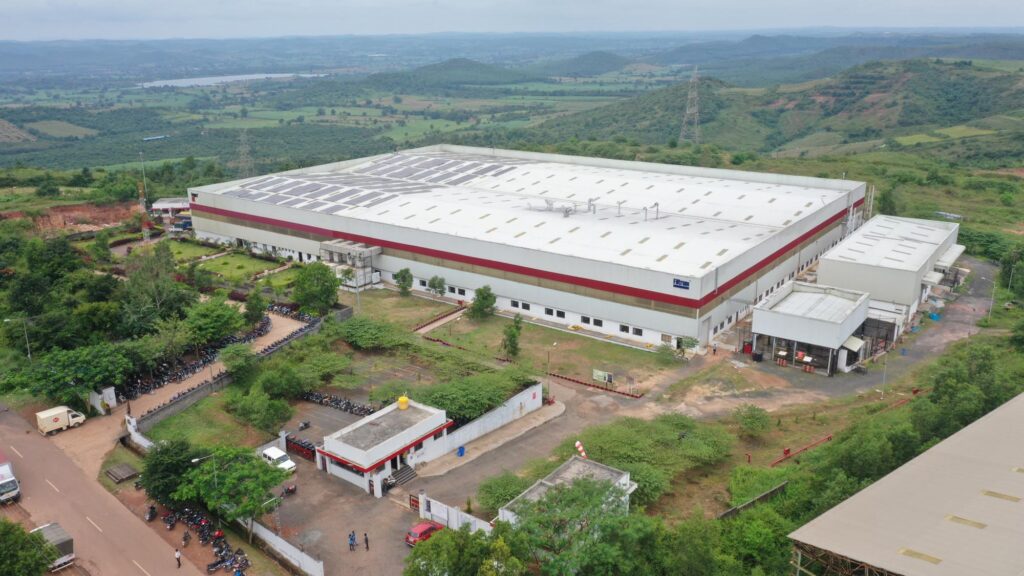
Niranjan emphasizes that technology alone does not differentiate a business; it is the systems and processes that add value. “We focus on flexibility in our orders; if a customer needs just one filter, we can deliver it,” he states. This customer-centric approach sets Fleetguard apart in an industry typically dominated by bulk orders.
He further highlights that “Fleetguard follows the Theory of Constraints (TOC) principles across all functions of the organization. The Critical Chain Project Management (CCPM) principle from TOC has helped us achieve the shortest lead time in new product development in the industry. This method allows Fleetguard to focus on one project at a time, ensuring that resources are not stretched too thin. “If I start doing multiple tasks simultaneously, none will be completed efficiently. We prioritize finishing one task before moving on to the next.”
Implementing Critical Chain Project Management (CCPM) has proven invaluable, allowing Fleetguard to speed up product development timelines. This rapid pace benefits customers by reducing lead times and ensuring timely delivery of solutions.
As Niranjan navigates market dynamics, he underscores the importance of aligning product readiness with OEMs. “If OEMs are prepared with their vehicles and we are not ready with our filtration solutions, the entire ecosystem is affected,” he warns. This synchronization is particularly crucial as European manufacturers increasingly advocate for electric and hydrogen technologies. “While we can learn from these trends, we remain skeptical about the viability of electric solutions in long-haul applications. LNG, CNG, and diesel will continue to dominate.”
Driving Innovation and Building a Resilient Aftermarket
As the automotive landscape in India transforms, Niranjan highlights the rising prominence of technologies such as LNG, EVs, hydrogen, and CNG. However, he notes significant challenges: “The infrastructure for LNG and CNG is not yet established properly.” Despite the growing interest in electric vehicles (EVs) for passenger and select commercial applications, Niranjan firmly believes that diesel engines will continue to dominate for the foreseeable future. “Our understanding is that diesel engines will remain for a very long period of time,” he emphasizes, referencing ongoing discussions about diesel technologies, including the upcoming emissions standards.
While Fleetguard is preparing for the transition towards hybrid and hydrogen technologies, Niranjan expresses skepticism about the feasibility of EVs in certain sectors. “In intra-city transportation, EVs will certainly prevail. But for long hauls, I have my doubts whether EV is a good option,” he explains. He also raises concerns about the environmental impact of electricity generation, suggesting that hydrogen fuel cells might provide a cleaner alternative. “Hydrogen is the cleanest technology,” he asserts, emphasizing that its only byproduct is water.
Fleetguard is keen to leverage its existing network of over 200+ distributors across India to enhance aftermarket offerings. “Our distribution network is not just about selling; it’s about effectively distributing the products we offer,” Niranjan explains. This strategy involves leveraging strong relationships with OEMs to introduce innovative solutions to the market.
To empower its channel partners, Fleetguard conducts annual training programs for its network, ensuring they are well-versed in product knowledge and quality assurance. “Hand-holding and providing know-how are essential for building relationships with customers,” Niranjan emphasizes.
Future Goals and Innovations
Looking ahead, Niranjan identifies improving productivity and reducing lead times as key short-term goals. “We aim to maximize machine utilization, as optimizing even one bottleneck can lead to significant improvements across our operations,” he states. In the long term, Fleetguard is committed to innovation, particularly in replacing steel components with biodegradable plastics to enhance sustainability. “We are collaborating with research institutions to develop high-temperature resistant materials that align with our industry requirements,” he shares.
Despite recent market fluctuations, Fleetguard maintains positive growth projections, aiming to sustain or surpass its historical compound annual growth rate (CAGR) of 10-15%. Niranjan anticipates seasonal trends, such as increased demand post-festivals, will boost recovery in the commercial vehicle sector. “We usually see a market uptick following major festivals, which is a good sign for our sales in the coming months,” he notes.
As he looks to the future, Niranjan also believes in the importance of a robust R&D facility, equipped to meet global standards. “Our lab is designed to test every filter under stringent NABL guidelines, which is crucial for maintaining quality,” he concludes. Fleetguard Filters continues to adapt and innovate, staying ready for today’s needs while laying a sustainable and forward-thinking foundation for tomorrow.


